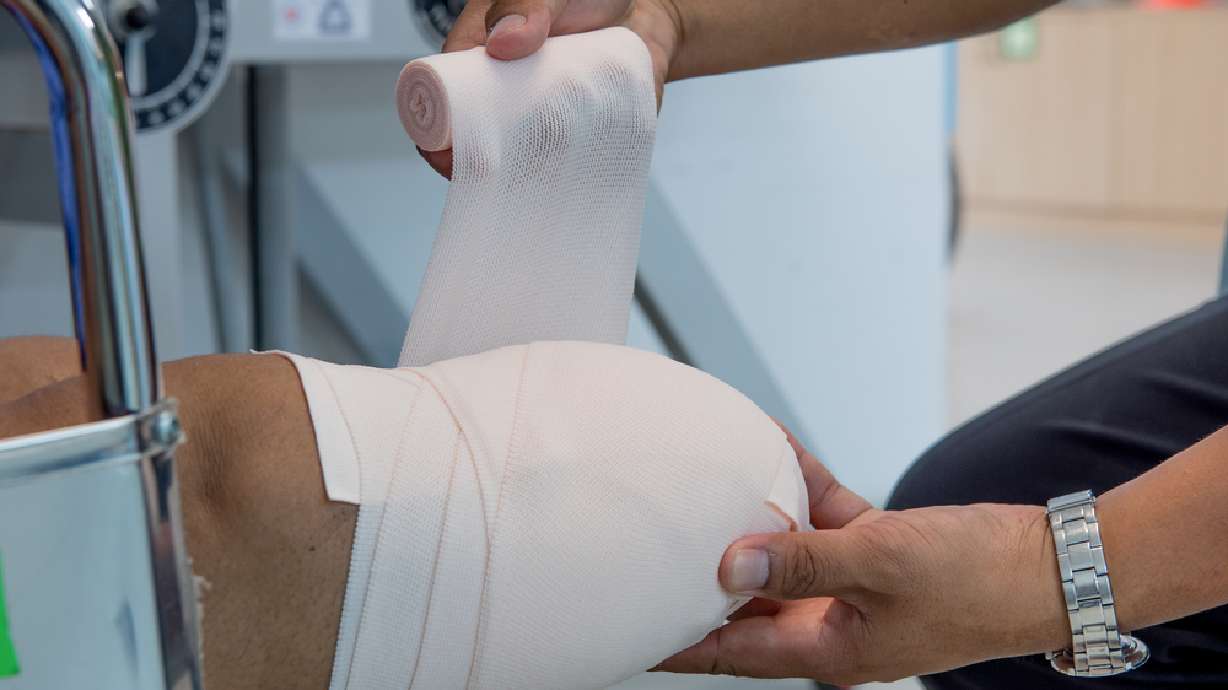Estimated read time: 5-6 minutes
This archived news story is available only for your personal, non-commercial use. Information in the story may be outdated or superseded by additional information. Reading or replaying the story in its archived form does not constitute a republication of the story.
When you spend roughly one-third of your life at work, accidents are bound to happen.
In 2019 alone, the National Safety Council's Injury Facts sheet reported 48.3 million injuries and 173,040 preventable deaths in the workplace. (And these are just the numbers that were actually reported.)
With few exceptions, Utah law requires employers to carry workers' compensation insurance to protect employees who are injured at work. This helps cover medical expenses and provides a modest wage to employees until they are able to return to work. In the case of a permanent injury or workplace death, workers' compensation insurance pays disability benefits to the employee or death benefits to an employee's family. It doesn't matter whether the accident was the employer's or the employee's fault.
But workers' compensation is no get-rich-quick scheme. The benefits are bare-bones and designed mainly to help keep the workers' families afloat while employees recover from work injuries. Most workers would give up their workers' compensation benefits in a heartbeat if it meant the initial accident or injury never happened in the first place. Even with modest insurance coverage, the road to physical and financial recovery is never easy.
One workers compensation insurance company encourages employees to stay safe with the tagline, "Be careful out there." But another reason to "be careful out there" is that insurance companies do not like to pay for these claims. They will often use every means at their disposal to delay or avoid payment altogether.
Such was the case for Craig (whose name has been changed) before he sought professional legal help.
Lost both legs
Craig was a family man--husband and father of three children. He worked for a railroad routing freight, maintaining locomotives, track, and equipment, and moving train cars from place to place around the depot. One day, as he uncoupled a slow-moving freight car, he tripped and fell under the wheels, losing both legs above the knees.
For a number of years, the workers compensation carrier paid for his medical treatment, prosthetic legs, and paid him a monthly pension for his inability to work. His employer, however, out of a sense of compassion and duty, specially tailored a light-duty job that he could do and kept him on as a paid employee. This job, and something productive to do every day, was vitally important not only to his family's economic welfare, but also to his mental health and his attitude about life in general.
A time came, however, when another insurer took over handling the claim from the previous workers compensation carrier. They saw that Craig was working at a full-time job and therefore could not be permanently, totally disabled (unable to work for anyone ever again). They cited a statute which allows an insurer to cut disability benefits in half if a so-called permanently and totally disabled worker is employed and earns a salary above a certain threshold. They argued that he could not be permanently and totally disabled and still work a full-time job. Craig came to see Davis & Sanchez for help in restoring his lost disability benefits.
After Davis & Sanchez filed a complaint with the Utah Labor Commission, we were able to negotiate with the new work comp insurance carrier. Davis & Sanchez pointed out that under Utah law, there are two ways to be found permanently, totally disabled. One way is to have a judge determine that an employee is no longer able to perform job functions he has in the past and at the same rate of pay he was earning when he was injured. The second way to be found permanently, totally disabled is to meet one of several conditions written into law.
As it turns out, losing two limbs is, under Utah law, automatically a permanently and totally disabling condition by definition. The ability to do work of any kind may not be considered in reducing such a person's benefit. Craig's benefits were restored, and thanks to his employer, he continues to live a productive, though not pain-free, life, and he can support his family.

Most workplace injuries aren't reported
What happened to Craig could easily happen to you or to those you love.
In 2019, the U.S. Bureau of Labor Statistics reported that an average of 2.8 per 100 full-time workers were injured on the job that year. The most common non-fatal injuries were sprains, strains, and tears. Transportation accidents accounted for the most common cause of work-related deaths.
When you're dealing with the lasting effects of a workplace injury or death, the last thing you want is a financial burden to carry as well. However, many workers are unaware of the benefits available to them through worker's compensation. The Occupational Safety and Health Administration estimates that half of workplace injuries go unreported.
Have you been injured at work? Get help!
If you suspect you aren't receiving the compensation you rightfully deserve for a workplace injury or illness, it's important to act quickly. Let the award-winning team of attorneys at Davis & Sanchez help. As a law firm focused solely on workers' compensation, Davis & Sanchez offers free case evaluations to help you determine if hiring an attorney is your best option.
Contact them today to get the help you need.









